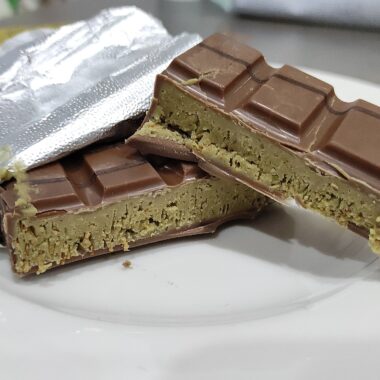A lingering fishy smell in the kitchen can be both unpleasant and perplexing, especially if you haven’t cooked seafood recently. If your kitchen smells like fish, it could be due to several factors ranging from simple to more serious issues. Let’s explore the common causes of this smell and what you can do to eliminate it.
Leftover Seafood or Fish Residue
The most obvious reason for a fishy smell is the presence of seafood or fish residue. If you’ve cooked fish recently, remnants of the smell may still be clinging to your pots, pans, utensils, or even countertops. Fish oil can be particularly stubborn and may require thorough cleaning to remove the odor entirely.
Solution:
Clean Thoroughly: Ensure that all cooking utensils, pots, pans, and surfaces that came into contact with fish are thoroughly cleaned. Use a mixture of vinegar and baking soda to neutralize odors.
Take Out the Trash: If you’ve disposed of fish scraps or packaging in your kitchen trash, take it out immediately, as the smell can quickly permeate the air.
Drains and Garbage Disposal
A common culprit for a persistent fishy odor is the kitchen sink, especially the drain or garbage disposal. Food particles, including fish, can get stuck and decompose in these areas, leading to unpleasant smells.
Solution:
Clean the Disposal: Run your garbage disposal with a mixture of ice cubes, lemon peels, and baking soda to help dislodge and neutralize any trapped food particles.
Clean the Drains: Pour a mixture of baking soda and vinegar down the drain, let it sit for a few minutes, and then flush with hot water to eliminate odors.
Spoiled Food
Sometimes, the fishy smell might not be from fish at all but from spoiled food in the fridge, pantry, or even countertops. Certain foods, like eggs, dairy, or meat, can develop a fishy odor when they start to spoil.
Solution:
Check for Spoiled Food: Inspect your refrigerator and pantry for any food that might be past its prime. Discard anything that seems suspicious or has a strong odor.
Clean Your Refrigerator: Remove everything from your fridge and clean it thoroughly with a mixture of water and vinegar. This will help remove any lingering odors.
Electrical Issues
A lesser-known cause of a fishy smell in the kitchen is an electrical problem. Overheating electrical components, such as wires, outlets, or even appliances, can emit a fishy or burning plastic smell.
Solution:
Inspect Electrical Outlets: If you suspect an electrical issue, unplug all appliances and carefully check outlets and wiring for any signs of overheating or damage.
Call an Electrician: If you notice anything unusual, it’s best to call a licensed electrician to inspect and repair the issue promptly, as electrical problems can be a serious fire hazard.
Ventilation Issues
Poor ventilation in the kitchen can cause odors to linger longer than they should. If your kitchen doesn’t have a good exhaust system or if windows are rarely opened, smells can build up over time.
Solution:
Improve Ventilation: Ensure that your kitchen is properly ventilated. Use your kitchen exhaust fan while cooking and open windows to allow fresh air to circulate.
Air Out the Kitchen: After cooking, leave windows open or use fans to help dissipate any lingering smells.
Contaminated Water
In some cases, the fishy smell might come from your tap water. Contaminants like algae blooms or bacterial growth in the water supply can produce a fishy odor.
Solution:
Test Your Water: If you suspect your water might be the source, have it tested for contaminants. Installing a water filter can also help eliminate any off-smells.
A fishy smell in your kitchen is not only unpleasant but can also signal a range of issues that need addressing. From leftover food particles to electrical problems, identifying the root cause is key to resolving the issue. By following the tips above, you can eliminate the odor and enjoy a fresh-smelling kitchen once again. If the smell persists despite your best efforts, it may be worth consulting a professional to ensure there are no underlying issues that need attention.
Persistent Odors: When to Seek Professional Help
While many causes of fishy odors in the kitchen can be resolved with a bit of cleaning and maintenance, there are instances where a persistent smell might indicate a more serious problem. If you’ve tried all the solutions mentioned above and the odor still lingers, it may be time to seek professional assistance.
Mold and Mildew
Mold and mildew can sometimes produce a musty or fishy odor, especially if there is hidden water damage in your kitchen. Areas like under the sink, behind appliances, or within walls can harbor mold growth if there has been a leak or excessive moisture.
What to Do:
Inspect for Leaks: Check for any signs of water damage, such as discoloration on walls or ceilings, and inspect under the sink for leaks.
Hire a Mold Specialist: If you suspect mold, it’s best to have a professional inspect your kitchen. Mold remediation might be necessary if the problem is extensive.
HVAC System
If the fishy smell is not confined to the kitchen but spreads throughout the house, the source might be your HVAC (Heating, Ventilation, and Air Conditioning) system. Dust, mold, or trapped food particles in the ducts can cause bad odors to circulate through your home.
What to Do:
Change Air Filters: Replace the air filters in your HVAC system regularly to prevent dust and debris buildup.
Duct Cleaning: Consider having your air ducts professionally cleaned to remove any contaminants that might be causing the smell.
Plumbing Issues
In some cases, a fishy smell might be linked to plumbing issues, such as a broken sewer line or a blocked vent pipe. These problems can cause unpleasant odors to escape into your kitchen and need to be addressed promptly to avoid more significant issues.
What to Do:
Check for Slow Drains: If your drains are slow or gurgling, it might indicate a blockage that needs to be cleared.
Call a Plumber: If you suspect a plumbing issue, especially if you notice other signs like water backing up, it’s important to call a licensed plumber to investigate and fix the problem.
Electrical Fires
As mentioned earlier, a fishy smell can sometimes be a sign of an overheating electrical component, which is a serious fire hazard. If you’ve ruled out all other causes and the smell persists, it’s crucial to consider this possibility.
What to Do:
Immediate Action: If you smell something burning or if the fishy smell becomes stronger when using certain appliances, unplug them immediately.
Professional Inspection: Contact an electrician to inspect your wiring and appliances. It’s better to be safe and ensure that there isn’t a hidden electrical issue that could lead to a fire.
Preventing Future Odors
Once you’ve successfully identified and eliminated the source of the fishy smell in your kitchen, it’s important to take steps to prevent future occurrences. Here are some tips to keep your kitchen smelling fresh:
Regular Cleaning: Keep your kitchen clean by wiping down surfaces, cleaning appliances, and regularly taking out the trash. Pay special attention to areas where food particles can accumulate, such as drains, garbage disposals, and behind appliances.
Proper Ventilation: Ensure your kitchen is well-ventilated, especially when cooking. Use exhaust fans or open windows to allow odors to escape.
Monitor Food Storage: Regularly check your fridge and pantry for expired or spoiled food, and make sure to store perishable items properly.
Routine Maintenance: Stay on top of maintenance tasks, such as changing HVAC filters, inspecting plumbing, and ensuring your kitchen appliances are in good working order.
A fishy smell in the kitchen can be more than just a nuisance; it can signal various underlying issues that need attention. Whether it’s a simple case of leftover fish residue or a more serious problem like mold or electrical issues, identifying the cause is crucial for maintaining a safe and pleasant home environment. By addressing the problem promptly and taking preventive measures, you can keep your kitchen smelling fresh and free from unwanted odors.
Additional Tips and Long-Term Solutions
After tackling the immediate causes of a fishy smell in your kitchen, you may want to consider implementing some long-term strategies to ensure your kitchen stays fresh and odor-free. Here are some additional tips and solutions that can help you maintain a pleasant kitchen environment.
Natural Odor Absorbers
Certain natural substances are excellent at absorbing and neutralizing odors. Placing these around your kitchen can help keep the air fresh and clean.
What to Use:
Baking Soda: Place an open box of baking soda in your refrigerator, pantry, or even on the countertop to absorb odors. Replace it every few months for maximum effectiveness.
Activated Charcoal: This is another powerful odor absorber. You can place activated charcoal in small containers around the kitchen to eliminate persistent smells.
Coffee Grounds: Fresh or used coffee grounds can absorb strong odors. Place them in a bowl and leave them in areas where smells tend to linger.
Regular Deep Cleaning
While daily cleaning is essential, regular deep cleaning can prevent odors from developing over time. Focus on areas that don’t get cleaned as often but can harbor smells.
Areas to Target:
Behind and Under Appliances: Pull out your refrigerator, stove, and other appliances to clean underneath and behind them. Food particles and spills in these hidden areas can contribute to bad odors.
Inside Cabinets and Drawers: Occasionally empty your kitchen cabinets and drawers, clean them thoroughly, and wipe down any food or grease residue.
Exhaust Hood and Filters: Clean your kitchen exhaust hood and filters regularly, as grease and food particles can accumulate and cause unpleasant smells.
Proper Food Disposal Practices
Improper disposal of food waste can lead to lingering odors in your kitchen. Implementing good disposal practices can help keep your kitchen fresh.
What to Do:
Use a Compost Bin: Instead of throwing all food scraps into the trash, consider using a compost bin for organic waste. This not only reduces odors but is also environmentally friendly.
Double Bagging: For particularly smelly food waste, such as fish scraps, double-bagging before disposal can help contain the odor until trash pickup.
Regular Trash Removal: Don’t let trash accumulate in your kitchen. Take it out regularly, especially after disposing of food waste.
Essential Oils and Air Fresheners
Using essential oils or natural air fresheners can help mask and neutralize any residual odors, leaving your kitchen smelling pleasant.
How to Use:
Essential Oil Diffusers: Set up an essential oil diffuser in your kitchen with scents like lemon, lavender, or eucalyptus. These scents are not only pleasant but also have deodorizing properties.
DIY Air Fresheners: Create your own air fresheners by mixing essential oils with water in a spray bottle. Spray this mixture around your kitchen to keep it smelling fresh.
Simmering Potpourri: Simmer a pot of water with citrus peels, cloves, cinnamon sticks, and other fragrant ingredients on the stove. This will fill your kitchen with a warm, inviting scent.
Routine Maintenance Checks
Regularly inspecting and maintaining your kitchen appliances and systems can help prevent odor-causing issues from arising.
Maintenance Tips:
Garbage Disposal: Run your garbage disposal regularly, and clean it with ice, lemon peels, and baking soda to prevent buildup.
Plumbing: Check for leaks under sinks and ensure drains are running smoothly. Address any plumbing issues immediately to prevent odors from developing.
Refrigerator: Keep your refrigerator clean and at the correct temperature to prevent food from spoiling prematurely. Replace water filters as recommended by the manufacturer.
When to Consider Professional Odor Removal Services
If you’ve tried everything and still can’t seem to get rid of the fishy smell in your kitchen, it might be time to consider professional odor removal services. These experts can identify and address hidden sources of odors that you might not be able to tackle on your own.
Mold Remediation Experts
If mold is the suspected cause of the odor, mold remediation professionals can safely remove it and treat affected areas to prevent recurrence.
Air Duct Cleaning Services
If your HVAC system is circulating unpleasant odors, professional air duct cleaning services can thoroughly clean the ducts and remove any trapped contaminants.
Deep Cleaning Services
For a thorough deep clean, consider hiring professional cleaning services. They can target areas that are difficult to clean on your own, ensuring your kitchen is spotless and odor-free.
Maintaining a Fresh Kitchen
A fresh-smelling kitchen is not only more pleasant but also an essential part of maintaining a healthy home environment. By addressing immediate causes of odors, implementing long-term preventive measures, and seeking professional help when needed, you can keep your kitchen smelling clean and inviting. Regular maintenance, proper cleaning habits, and the use of natural odor absorbers will go a long way in ensuring that your kitchen remains a space where you can cook and enjoy meals without the distraction of unpleasant smells.


















